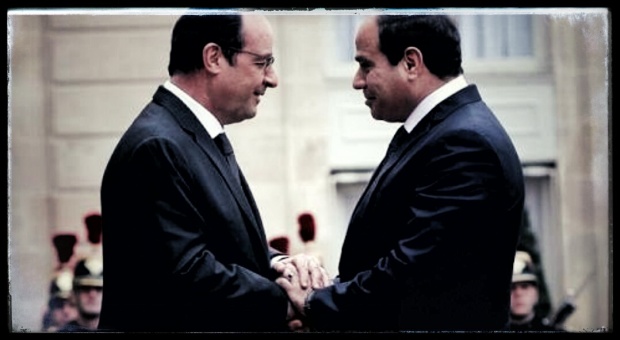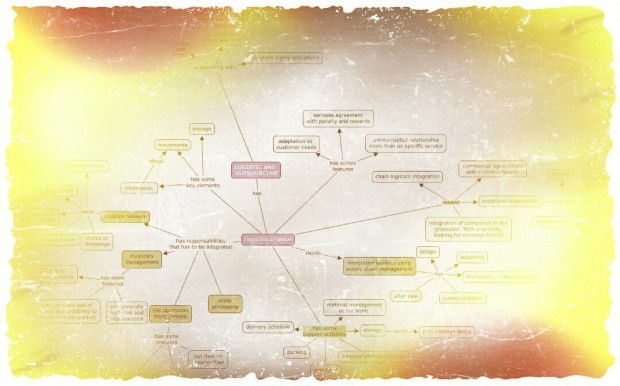كانت استراتيجية مايكل كولينز البارعة في جمع المعلومات الاستخبارية ضد قوات الاحتلال البريطاني، والقضاء على ضباط المخابرات البريطانية والمخبرين المدنيين، محورية من أجل بقاء الجيش الجمهوري الايرلندي كمنظمة، إلا أن فيلق التدخل السريع المعروف باسم (Flying Columns) المكون من جنود مقاتلي العصابات المتطوعين هو الذي لعب أهم دور في طرد الجيش البريطاني من البلاد.
الهدف الرئيسي من دراسة تجارب المقاومة الماضية والصراعات الثورية ليس هو للمحاكاة أو تقليد التكتيكات والاستراتيجيات بعينها، ولكن لمعرفة الأسس التي استندت إليها في وضع تلك الاستراتيجيات، وبعبارة أخرى يمكننا دراسة التفكير وراء الاستراتيجيات، وتطبيق نفس المبادئ عند صياغة النهج الخاص بنا، وفقا للشروط المحددة التي نواجهها.
مصر لا يوجد لديها أي شيء يعادل الجيش الجمهوري الايرلندي، وبالتأكيد المعادل لهم ليس هو جماعة الإخوان المسلمين، ربما حماس هي أقرب معادل لدينا في العالم الإسلامي للشين فين والجيش الجمهوري الايرلندي، فالتكتيكات المحددة التي استخدمت من قبل الجيش الجمهوري الايرلندي ضد الاحتلال البريطاني في أوائل القرن لا يمكن تطبيقها بالضرورة في مصر اليوم.
جمع المعلومات يعتبر شيء حيوي بطبيعة الحال، وبالتالي القضاء على عملاء المخابرات، يعتبر شيء مبرر وضروري على حد سواء، أما المخبرين المدنيين (الأمنجية)، فالجزء الأكبر منهم لا يمكن القضاء عليه، فلا يوجد هناك ما يكفي من تضامن القاعدة الشعبية مع الجماعات الثورية ليتم تمكين هذه الاستراتيجية بأمان كافي، ومع هذا فيمكن على الأقل التعرف عليهم وتحديدهم وفضحهم.
فعندما يتم تحديد شخص كمخبر للنظام، يجب أن يعرف الحي الذي يعيش فه كله هذا الأمر، “هذا الشخص مخبر… أو أمنجي”، ويجب رشه بالبوية والدهان في كل مكان يذهب إليه، وإذا أمكن يجب أن يتم تمييز باب وجدران منزله بالكتابة الجرافيتي عليها، وكذلك على الأبواب والنوافذ والزجاج الأمامي لسيارته، ففضح المخبر يعتبر تقريبا أشبه شيء بالقضاء عليه، على الأقل سيحد هذا بشدة من الخطر الذي يشكله.
استراتيجية “فيلق التدخل السريع” للجيش الجمهوري الايرلندي يمكن تكييفها لتلبية ديناميات السلطة الحقيقية في مصر، وفي المغرب، وتونس، وفي أي مكان آخر … من خلال مجموعات من الثوار تقوم (بدلا من ضرب مواقع للجيش وقوافله) بضرب مرافق ووسائل نقل الشركات المتعددة الجنسيات: شاحنات التوصيل الخاصة بهم ومخازنهم، ومراكز توزيعهم، ومكاتبهم وسيارات نقل عمالهم، ومواقف سياراتهم، وأماكن عملهم، ومعدات البناء، ومواقع البناء والكهرباء والسباكة… وهكذا.
كلمة “ضرب” هنا لا تعني “الهجوم بعنف”، فهذا غير ضروري بالمرة.
فالنقطة هي تعطيل عملياتهم وتكبيدهم التكاليف، فعلى سبيل المثال الشاحنات يمكن أن تجبر بسهولة للخروج عن طريقها من خلال سيارة أو سيارتين، ويمكن قطع الإطارات، أو مصادرة المفاتيح…. الخ، وهذا سيكفي. وكل هذا يمكن إنجازه في غضون دقائق وسيؤدي لتعطيلات وإرباك بشكل كبير، كما يمكن تخويف العاملين من دون إلحاق الأذى بهم.
أما “فيلق الانتشار السريع” (وهذا يمكن تنظيمه في مصر) فيمكن، بل يجب، أن يتم تكريسه لضمان أن الشركات متعددة الجنسيات لا يمكن أن تعمل في البلاد، ولا يمكن أن تربح، دون الحصول على موافقة وتأييد الثوار.
وكلما تجاوزتم الجيش سريعًا وبدأتم في التعامل مباشرة مع الشركات، كلما كان حصولكم على النتائج أسرع.
Michael Collins’ ingenious strategy of intelligence gathering against British occupation forces, and the elimination of British intelligence officers and civilian informers, was crucial for the survival of the IRA as an organization; but it was the “Flying Columns” of volunteer guerrilla soldiers that played the most important role in driving the British army out.
The main point of studying the experience of past resistance and revolutionary struggles is not to emulate or mimic their specific tactics and strategies, but to learn the basis upon which they crafted those strategies. In other words, we can study the thinking behind the strategies, and apply the same principles when we formulate our own approaches, according to the specific conditions we face.
Egypt has no equivalent of the IRA, certainly not the Muslim Brotherhood; perhaps Hamas is the closest equivalent we have in the Muslim world to Sinn Fein and the Irish Republican Army. The precise tactics used by the IRA against the British occupation in the early 20th Century are not necessarily applicable in Egypt today.
Intelligence gathering, of course, is vital. Eliminating intelligence agents, is both justified and crucial. Civilian informers, for the most part, cannot really be eliminated; there is not enough grassroots solidarity with the revolutionary groups to enable such a strategy to be pursued safely. However, they can be identified and exposed.
When someone has been identified as an informer, his entire neighborhood should know about it. “So-and-so is a Mukhber” should be spray painted on walls everywhere he goes. If possible, the door and walls of his home should be tagged with this graffiti , as well as the doors, windows, and windshield of his car. Exposing a mukhber is almost the same as eliminating him; anyway, it severely limits the danger he poses.
The “Flying Column” strategy of the IRA can be adapted to address the real power dynamics in Egypt..in Morocco, in Tunisia, and anywhere else…with groups of rebels striking, instead of army outposts and caravans; the facilities and transportation of multinational corporations. Their supply trucks, their warehouses, their distribution centers, their offices, worker transport vehicles, their parking lots, their labor accommodations, their construction equipment and building sites, their electricity and plumbing; so on and so forth.
“Striking” them does not mean “attack them violently”; that isn’t necessary.
The point is to disrupt their operations and inflict cost. For instance; trucks can be easily forced off the road by one or two cars; the tires can be slashed, the keys confiscated, etc..that is enough..and it can be accomplished in a matter of minutes. It will result in significant disruption, as well as potentially intimidate employees without actually harming them.
Flying Columns in Egypt (if they can be organized) could, and should, be dedicated to ensuring that multinationals cannot function in the country, cannot profit, without the rebels’ permission.
The sooner you bypass the military, and begin dealing directly with the corporations, the sooner you will get results.









